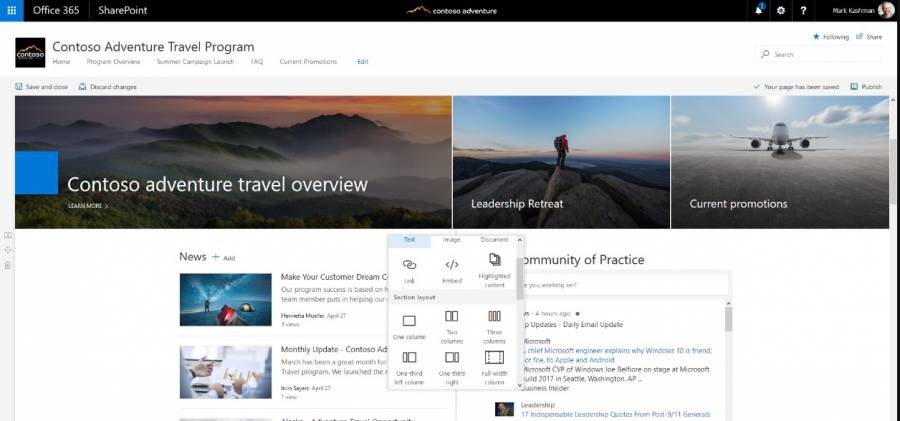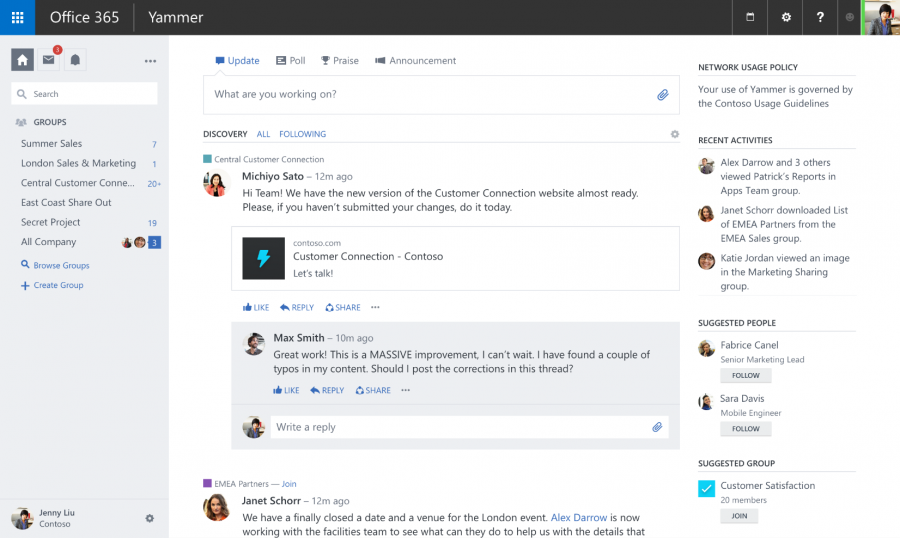Remote work is on the rise globally. There are various reasons for the rising trend of remote workers. The connected global economy brings companies to skilled, less expensive labor markets. Technological advances and the ubiquity of the internet allows people to stay connected wherever they are. Now you’ll want to ensure happiness and high productivity of your remote workers.
The Remote Working Explosion
Around 16% of companies worldwide have a 100% remote workforce. An additional 52% of office workers around the world working from home at least once a week. Another trend is that a substantial number of workers would drop their current office job for the chance of working from home, provided the offered pay stays the same.
It’s not a surprise, given that recent scientific studies showed that people working from home, especially married individuals, are happier than their office-dwelling counterparts. At the same time, lower operational costs for companies that don’t have to support bloated offices, and better online availability of non-commuters means that remote work is here to stay.
In this context, remote job opportunities become a must-have for companies looking to hire top talent and keep their existing employees happy, as expectations from a remote work will only raise. That’s why keeping remote employees productive and happy becomes an essential task for employers all over the world.

Challenges of Remote Work
Apart from the drawbacks, remote work may come with a variety of problems, such as:
- Asynchronous collaboration and communication that can paralyze teamwork
- Inability to deliver high-priority projects due to remote work constraints (for example, time differences)
- Failure to manage daily performance properly leading to abusive micromanagement practices that cause unneeded pressure on employees
- Siloed knowledge that doesn’t flow to remote workers freely, thus making them feel isolated and lagging behind their in-house colleagues
- Misbalanced working schedule with regular overloads, which leads to employees’ decreasing productivity or, at worst, lasting periods of apathy.
Luckily, there are many ways to combat these symptoms and create a robust, effective, and loyal remote workforce. Besides, technology can be the most effective one. According to SharePoint consultants from Iflexion, y your intranet can become a bridge between your remote and in-office employees by driving communication, improving productivity, and contributing to employee retention.
Improving Communication
Being informed is crucial for productivity. When employees know what other team members are working on, how the travel reimbursement policy has changed or can follow all of the new hires in their organization, they can stay tuned for corporate processes, have access to the required knowledge, and, as a result, deliver positive results.
To ensure successful communication, companies implement internal communication tools, and their share is stably increasing around the world. Over 60% of internal communication teams are planning to expand the corporate use of internal social channels, and 50% have the same plans for their intranets, with 57% of organizations using SharePoint as their main internal communications tool. The key reason for the platform’s popularity is in a plethora of features that enable effective enterprise-wide collaboration and communication.
Communication sites available in Office 365 and SharePoint 2019 can be the example of a suitable medium for dynamic information exchange between in-house and remote employees. A great thing about this feature is that anyone can launch a communications site.

Generally, communication sites are there to host all types of corporate information:
- Team calendars
- Documents and media content
- Internal news and updates
- Reports, surveys, and research
- Corporate or team knowledge, and more
Facilitating Team Collaboration
When your team is working remotely and team members are in different time zones, work coordination might become complicated. Even simple activities, such as tracking tasks or scheduling meetings, can be problematic.
Of course, there’s a way to address these issues through a comprehensive approach to team management. In SharePoint, team sites are responsible for team collaboration. They are similar to communication sites but also offer project management features that can be helpful for project-oriented teams.
If you launch a team site in Office 365, you automatically get the Office 365 Group, which enables access to a shared Outlook calendar, tasks in Microsoft Planner, team communication in Microsoft Teams, and even a shared workplace in Power BI, which is essential for teams that work with analytics or need advanced reporting features.
Another strong side of SharePoint is that it enables intranet developers to juggle components (called web parts) that users will see on the final team or communication sites. Some of the useful web parts for distributed teams include but are not limited to:
- Document Library
- File Viewer
- Microsoft Forms
- Planner
- Quick links
- Connectors to Trello, Facebook, JIRA, and other third-party systems
It should be said that SharePoint in its modern state is mobile-friendly, which greatly improves the accessibility of solutions built on top of it for remote workers. Check out the clean features of the SharePoint site.
Understanding Employee Performance
When you manage a distributed team, it’s very important to track their productivity and understand what process and tools they prefer to succeed in their daily work.
An intranet can help organizations, and particularly team managers, keep an eye on employee performance. Key intranet providers, including Microsoft, have already turned their attention to workplace analytics.

Workplace analytics in Office 365 enables team managers to assess the efficiency of all team activities, understand the most fruitful collaboration media, and eliminate time-eaters like idle meetings. When it comes to measuring the effectiveness of remote teams, workplace analytics can reveal the overall intensity of collaboration within the team. Start to compare collaborative efforts with real working results, or identify misbalance in the team load.
The list can go on, but what’s important is that you’ll be able to see these trends through historical data usage at the user level. This can help you identify team members falling behind or being unaware of all the capabilities available for your team to succeed. In that case, corrective action is up to you. But it can be anything, from technology-specific training to additional instructions on optimal collaboration practices.
Creating Social Experiences for Employees
Imagine that you could have your internal Reddit or Quora, where people get together, discuss topics, celebrate ideas, and have fun. That’s entirely possible with Yammer, an enterprise social networking platform, which is a part of Office 365 and can go together with SharePoint. Organizations can use it as a standalone collaboration forum or make it a part of their SharePoint sites to unite the capabilities of both solutions.

Using Yammer, employees can directly message other team members, and share conversations. An employee can discover a detailed organizational charts (especially useful during onboarding), and explore employee profiles. The best for you team (especially remorte workers) is engaging in conversations, being able to tag people — and much more. Your remote workers will never feel alone, disengaged, or helpless again.
Size Doesn’t Matter
Keeping your employees happy and productive is a monumental task. And it doesn’t matter if you’re running a small company or a large global enterprise. The problems will be the same because they stem from the inherent isolation that remote workers experience. The good thing is that intranet platforms like SharePoint are available for any enterprise, from small companies to global businesses.
Small enterprises will enjoy a relatively small investment required to get started. You don’t need any infrastructural investments to connect even the smallest of teams across the world. Large enterprises will enjoy the scalability and modularity of SharePoint, as it has tons of enterprise-grade features, from project management areas to comprehensive team sites that can be set up in hours.
The Evolution of the Remote Worker
The ability to work remotely is attractive to many modern job seekers. At the same time, the global nature of today’s business requires companies to build isolated remote teams too. However, that brings up a host of issues, from the lack of social interaction to the vanishing sense of community among employees. This can hurt the productivity and happiness of your remote workforce.
A viable solution for these problems would include improving internal communication, enabling closer collaboration, and facilitating social interactions in distributed teams.
An intranet, especially the one based on a robust collaboration platform like SharePoint, can be the right solution to address these issues. Such a solution can improve employees’ involvement and productivity through built-in features, enable them to create their own optimal collaboration environment, along with providing permanent access to all team processes and knowledge.
Try Out Productivity Tools We Are Using
Monday.com | Best Productivity and Management Tool | on Monday.com | |
Calendar.com | Best Calendar and Scheduling Tool | on Calendar.com | |
Later.com | Best Social Media Scheduling Tool | on Later.com | |
Todoist.com | Best Time Management Tool | on Todoist.com | |
Toggl.com | Best Value Tool | on Toggl.com | |
Trello.com | Best Overall Tool | on Trello.com |


















